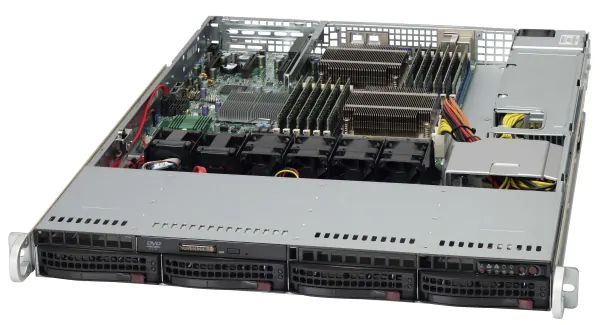Why Do We Still Love Nintendo ‘Til This Day

After promising to halt the Super Mario Bros. 35 battle royale and pull the plug on Super Mario 3D All-Stars sales, Nintendo received anger in March when it did both. Many players felt removing games or features was unnecessary punishment, even though those and similar actions were justified as a technique to make limited-edition releases feel special. How exactly does that help players?
Sure, it’s Nintendo, but. We can’t possibly harbor resentment toward them, right?
The Mario scandal was just the latest example of an unintentional gaffe turning into a public relations disaster, which seems to par for the course in the business world. Recent bad press includes the exposure of the Switch’s inactive Bluetooth feature, the shelved status of beloved franchises like F-Zero, and the strict enforcement of intellectual property rights.
Critics have even gone as far as to imply that Nintendo’s apparent disdain for its supporters may be traced back to these slip-ups. To be fair, they don’t dislike their audience nearly as much as Sony does, but that’s fodder for another essay.
Although the company has made some blunders in the past (looking at you, Virtual Boy), Nintendo has become a global powerhouse by always adopting an unorthodox approach. Moreover, historically speaking, it is appropriate to buy stock anytime the mob begins to analyze the company’s strategy.
Following the video game market collapse of 1983, when the industry was all but written off, Nintendo released the NES in the United States. Later on, after everyone else in the industry had moved on to disc drives, Nintendo came out with a system that relied on cartridges: the N64. After Sony and Microsoft kept releasing their standard video game consoles, Nintendo bet the company on the Wii and its novel motion-based gameplay. While Sony and Microsoft keep cranking out roided-up, cutting-edge devices, Nintendo has found success with the Switch, which is less powerful but easier to use.
Nintendo has always had an independent spirit, which has both helped and hindered the company. Its unique strategy has helped cultivate a rabid fan base that, 35 years after the NES’s release, shows no signs of slipping away, even if the firm occasionally fumbles.
Even if Nintendo isn’t your thing or you’re not a fan of their recent decisions, they still have a sizable following.
Nintendo continues to be an innovator
Sony and Microsoft have now entered a full-scale technological arms race. Though they experiment with new platforms like PlayStation VR and Xbox’s doomed Kinect, the console industry’s bread and butter are good ol’ fashioned, controller-in-hands gaming.
Nintendo, though, isn’t only dabbling with the experimental. Since the release of the Wii in 2006, it has been a driving force in developing novel approaches to the industry’s traditional practices. Since 2001, when the GameCube debuted, the business has not made a “traditional” system.
Some overlapping concepts exist, yet an argument can be made Nintendo isn’t directly competing with the likes of Apple and Google. This strategy can be successful; Nintendo sold over 100 million Wiis, and Switch sales are on track to top those numbers eventually. But sometimes it fails miserably; the Wii U sold fewer than 20 million units between these two. Regardless, gamers have learned they can always count on Nintendo to do something fresh and interesting.
The most popular handheld gaming system
Over the past three decades, Nintendo has dominated the portable video game business. The 3DS, the company’s last handheld gadget, sold over 75 million copies. That’s higher than sales of certain big home consoles like the Xbox One but lower than Sony’s answer, the PlayStation Vita, which didn’t even break into the eight-figure range. And, of course, the fact that the Switch can be used as a stationary console in the home or as a portable device has been a major factor in its commercial success.
Not everyone enjoys playing video games like what Betshah games offer on their portable devices, but the numbers can’t be ignored. One might expect a massive following. The Switch is also growing in the handheld industry because people are more likely to take advantage of its portability once it is made available, even if it wasn’t a selling factor.
Playing any of the Switch’s games anywhere is a significant timesaver. In this respect, Nintendo is unassailable.
Entertaining for people of all ages
The Nintendo Switch is the most kid-friendly gaming system currently available, but this wasn’t achieved just by releasing more kid-friendly games. Many Nintendo games have such wide appeal that people of any age can enjoy them.
No matter how much you enjoy games with expansive worlds, challenging objectives, and gorgeous visuals, there are times when you just want to sit down and play something simple. You know what you’re getting when you boot up a Mario game, but that doesn’t mean the Switch is devoid of interesting, tough games. It’s a fun and simple platformer that won’t frustrate newcomers.
There are playable titles for the PS4 and Xbox One, too. However, since the demographics of these game libraries are more likely to include adults, you’ll find more in-depth games that often deal with serious or even gloomy themes.
Legendary video game series
People’s enthusiasm for Mario 35 and 3D All-Stars can be attributed only to their fondness for Mario. They’re big fans of Donkey Kong. They are huge fans of the Legend of Zelda series. They’re big Metroid fans. Pokémon is a huge fandom for them.
The fact remains that Nintendo’s franchises continue to be wildly popular and that any frustrations customers may have with the firm outweigh the endless hours Nintendo’s most devoted fans spend immersed in these cherished characters and settings.
While Nintendo certainly has its flaws, the company succeeds in many areas. The Switch is a cool console because it gives players a wide variety of options for what to play and how to play it.





